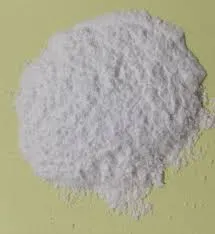- Afrikaans
- Albanian
- Amharic
- Arabic
- Armenian
- Azerbaijani
- Basque
- Belarusian
- Bengali
- Bosnian
- Bulgarian
- Catalan
- Cebuano
- Corsican
- Croatian
- Czech
- Danish
- Dutch
- English
- Esperanto
- Estonian
- Finnish
- French
- Frisian
- Galician
- Georgian
- German
- Greek
- Gujarati
- Haitian Creole
- hausa
- hawaiian
- Hebrew
- Hindi
- Miao
- Hungarian
- Icelandic
- igbo
- Indonesian
- irish
- Italian
- Japanese
- Javanese
- Kannada
- kazakh
- Khmer
- Rwandese
- Korean
- Kurdish
- Kyrgyz
- Lao
- Latin
- Latvian
- Lithuanian
- Luxembourgish
- Macedonian
- Malgashi
- Malay
- Malayalam
- Maltese
- Maori
- Marathi
- Mongolian
- Myanmar
- Nepali
- Norwegian
- Norwegian
- Occitan
- Pashto
- Persian
- Polish
- Portuguese
- Punjabi
- Romanian
- Russian
- Samoan
- Scottish Gaelic
- Serbian
- Sesotho
- Shona
- Sindhi
- Sinhala
- Slovak
- Slovenian
- Somali
- Spanish
- Sundanese
- Swahili
- Swedish
- Tagalog
- Tajik
- Tamil
- Tatar
- Telugu
- Thai
- Turkish
- Turkmen
- Ukrainian
- Urdu
- Uighur
- Uzbek
- Vietnamese
- Welsh
- Bantu
- Yiddish
- Yoruba
- Zulu
Nov . 15, 2024 10:31 Back to list
albendazole suspension syrup
Albendazole Suspension Syrup A Comprehensive Overview
Albendazole is a broad-spectrum anthelmintic agent that is widely used to treat various parasitic infections. It belongs to the class of medications known as benzimidazoles and is particularly effective in treating infections caused by worms such as hookworms, roundworms, whipworms, and tapeworms. The suspension syrup formulation of albendazole plays a crucial role in its administration, especially in pediatric and geriatric populations, where swallowing tablets may prove challenging.
Mechanism of Action
Albendazole exerts its anthelmintic effects by inhibiting the polymerization of tubulin, which is essential for the formation of microtubules in the parasite's cells. This disruption interferes with the parasite's energy production and glucose uptake, ultimately leading to its death. Since albendazole is also effective against larvae of certain parasites, it is often the treatment of choice for conditions such as neurocysticercosis, a serious infection caused by the pork tapeworm, Taenia solium.
Indications and Usage
Albendazole suspension syrup is predominantly indicated for the treatment of various helminthic infections, particularly in children. Common indications include ascariasis, enterobiasis, and strongyloidiasis. The syrup formulation is advantageous for children who may have difficulty swallowing tablets or for those requiring precise dosing adjustments. The ease of administration improves compliance, leading to better treatment outcomes.
Dosage and Administration
albendazole suspension syrup

The dosage of albendazole suspension syrup can vary based on age, weight, and the type of infection being treated. For most parasitic infections, a single dose is often sufficient, although in certain cases, repeated dosing may be necessary to ensure complete eradication of the parasites. Healthcare providers typically recommend administering the syrup with food to enhance absorption and maximize efficacy.
Side Effects and Precautions
While albendazole is generally well-tolerated, some side effects may occur. Common side effects include abdominal pain, nausea, vomiting, and headache. Serious side effects are rare but can include bone marrow suppression and liver function abnormalities. As a precaution, healthcare professionals often recommend regular monitoring of liver function and blood cell counts during prolonged treatment.
Special care should be taken when prescribing albendazole to pregnant women, especially in the first trimester, as it may pose risks to the fetus. Patients with pre-existing liver disorders should also use the medication with caution.
Conclusion
In summary, albendazole suspension syrup is a critical medication in the fight against parasitic infections. Its ease of administration, coupled with its efficacy and safety profile, makes it an ideal choice for treating helminthic infections, particularly in children. As with any medication, proper use and monitoring are essential to ensure positive patient outcomes. As we continue to combat parasitic diseases globally, albendazole remains a cornerstone of anthelmintic therapy, contributing significantly to improved public health.
-
Guide to Oxytetracycline Injection
NewsMar.27,2025
-
Guide to Colistin Sulphate
NewsMar.27,2025
-
Gentamicin Sulfate: Uses, Price, And Key Information
NewsMar.27,2025
-
Enrofloxacin Injection: Uses, Price, And Supplier Information
NewsMar.27,2025
-
Dexamethasone Sodium Phosphate Injection: Uses, Price, And Key Information
NewsMar.27,2025
-
Albendazole Tablet: Uses, Dosage, Cost, And Key Information
NewsMar.27,2025













